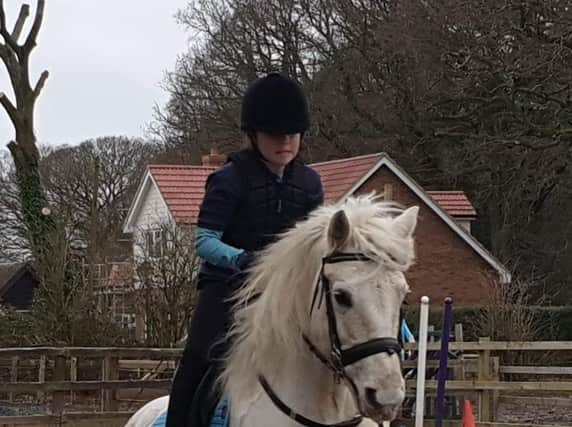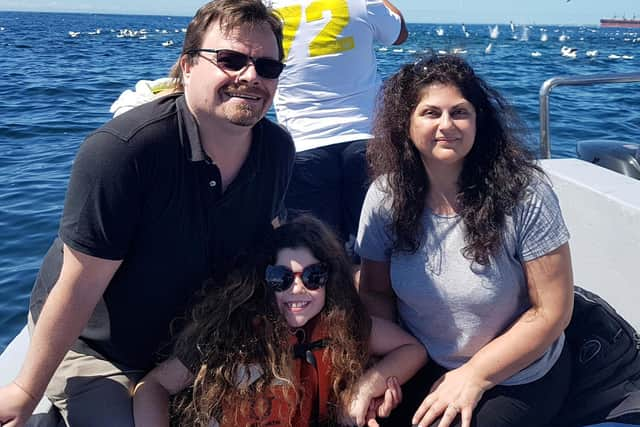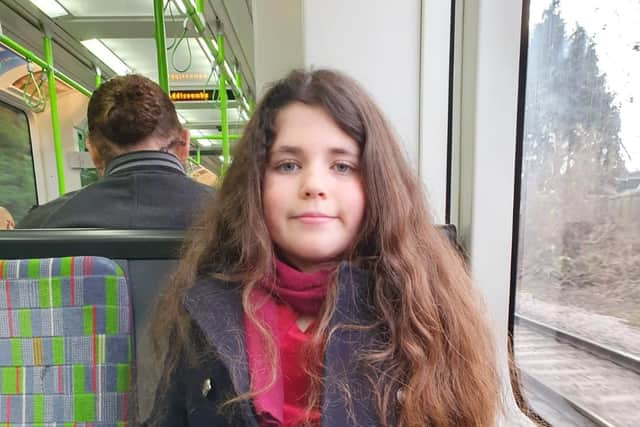Medical negligence led to death of 11-year-old girl after she contracted meningitis, inquest rules


Annalise Luffingham waited in hospital for six-and-a-half hours before antibiotics were administered. Sepsis tests were not correctly completed, meaning she wasn’t transferred to specialist paediatric care.
An NHS report also found 11 problems in her care, including delay in administering drugs. A coroner concluded neglect contributed to the death of the academically gifted and sporty girl.
Advertisement
Hide AdAdvertisement
Hide AdHer parents and their legal team are now calling for lessons to be learned after the inquest concluded.


Tracey Shephard, 49, and David Luffingham, 54, took Annalise to Croydon University Hospital’s children’s A&E after becoming concerned she had been suffering with a headache and eye pain for a week as well as dizziness and vomiting, confusion and a high temperature.
The inquest at Croydon Coroner’s Court heard staff incorrectly completed a screening tool to assess Annalise, known as Annie, for sepsis – a condition which sees the body attack itself in response to an infection.
Because of the failure, a specialist sepsis protocol was not instigated, resulting in Annie not receiving appropriate treatment.
Advertisement
Hide AdAdvertisement
Hide AdAfter an initial review, Annie, from Addiscombe, Croydon, was referred to A&E’s medical team.


However, if the tests had been completed correctly, she should have been referred to a specialist paediatric team and should have started receiving intravenous antibiotics within an hour, the inquest heard.
During the course of the inquest, a medical entry concerning Annie’s care was amended months after the event by the consultant in charge of her treatment when the matter was being investigated by the Trust.
The Royal Russell school pupil, who also had an increased respiratory rate, was not reviewed by a paediatric consultant until three hours after arriving in hospital.
Advertisement
Hide AdAdvertisement
Hide AdFollowing further examinations, Annie was given ibuprofen and paracetamol but intravenous antibiotics were only prescribed and administered six-and-a-half hours after she arrived at hospital.
The inquest heard that staff also failed to note and act upon Annie’s deterioration during this time.
Just over an hour later Annie suffered a cardiac arrest. She was resuscitated and transferred to another hospital but tragically died the next day. The trust admitted liability for Annie’s death.
Coroner Sonia Hayes recorded a narrative conclusion that Annie died of natural causes contributed to by neglect.
Advertisement
Hide AdAdvertisement
Hide AdShe added there were multiple issues in Annie’s care and it was not just one area or department where care issues arose.
Tracey said: “Annie was the most wonderful, beautiful and inquisitive daughter we could have ever wished for. She loved horse riding and playing football and was academically gifted. She had been studying for her 11-plus and always wanted to be the best person she could.
“That she will not grow up to fulfil her potential or celebrate life’s milestones such as passing her exams or starting her first job is something that I don’t think our family will ever get over.
“We didn’t want to take any chances with Annie’s health, and we thought that by taking her to hospital she would be in the best hands possible. It’s difficult not to think that when she needed help the most she was let down.
Advertisement
Hide AdAdvertisement
Hide Ad“Despite what happened to Annie, it’s vital people are aware of the signs and symptoms of meningitis and continue to seek medical help as soon as possible. It could make all the difference to their family.”
David added: “It’s almost impossible to find the words to describe the hurt and pain we continue to feel over Annie’s death and particularly the way in which we lost her.
“However, we try and take some comfort from the kind messages of support and fundraising that has taken place in Annie’s memory. It shows how much others also adored her and can’t thank people enough for their words.
“By sharing our story, we just hope to save lives in the future as people become more aware of the symptoms and of the impact this horrible disease can have.
Advertisement
Hide AdAdvertisement
Hide Ad“If we can help save at least one life, then Annie’s death may not have been totally in vain.”
Annie, who was previously fit and healthy, arrived at children’s A&E at Croydon University Hospital at about 10am on February 11 last year. During an initial assessment, tests for sepsis were completed.
Shortly afterwards she was transferred to a team within the main A&E department instead of to a specialist paediatrics team. Annie, who aspired to be a vet, was then transferred to the paediatrics team at around 12.45pm.
Following more tests Annie was given ibuprofen and paracetamol. At 4pm a consultant prescribed antibiotics which were administered around half an hour later.
Annie suffered a cardiac arrest at around 5.50pm.
Advertisement
Hide AdAdvertisement
Hide AdThe Root Cause Analysis Report found 11 problems in Annie’s care, including that sepsis screening was not completed correctly, staff failed to recognise Annie’s respiratory rate was raised, sepsis was not considered as a diagnosis and there was a delay in starting intravenous antibiotics.
The report made 17 recommendations to improve care including staff undergo training, including for managing sepsis and meningitis, and intravenous antibiotics should be given within an hour where there is suspicion of sepsis or bacterial meningitis.
All patients' notes should also be on an electronic system and not on paper, and staff need to improve written and verbal communication.
Dami Oloyede, the legal expert at Irwin Mitchell representing the family, said after the inquest: “This is a truly tragic case and understandably Tracey and David have been left absolutely devastated by the death of their bright and promising daughter.
Advertisement
Hide AdAdvertisement
Hide Ad“For more than a year the family have had a number of concerns about Annie’s care, with the inquest and the Trust’s own internal investigation report also now identifying a number of worrying areas.
“Sadly, through our work we often see the devastating consequences that families can be left to face because of delayed recognition and treatment of meningitis.
“While nothing can make up for the hurt and pain Annie’s family continue to live with, it’s vital that lessons are now learned to improve patient safety, so others don’t have to suffer like Tracey and David.
“Awareness of the signs as well as early detection and treatment are key to beating meningitis.”